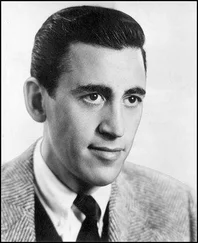Jerome David Salinger - A Boy in France
Здесь есть возможность читать онлайн «Jerome David Salinger - A Boy in France» весь текст электронной книги совершенно бесплатно (целиком полную версию без сокращений). В некоторых случаях можно слушать аудио, скачать через торрент в формате fb2 и присутствует краткое содержание. Год выпуска: 1945, Издательство: Curtis Publishing Company, Жанр: Классическая проза, на английском языке. Описание произведения, (предисловие) а так же отзывы посетителей доступны на портале библиотеки ЛибКат.
- Название:A Boy in France
- Автор:
- Издательство:Curtis Publishing Company
- Жанр:
- Год:1945
- ISBN:нет данных
- Рейтинг книги:3 / 5. Голосов: 1
-
Избранное:Добавить в избранное
- Отзывы:
-
Ваша оценка:
- 60
- 1
- 2
- 3
- 4
- 5
A Boy in France: краткое содержание, описание и аннотация
Предлагаем к чтению аннотацию, описание, краткое содержание или предисловие (зависит от того, что написал сам автор книги «A Boy in France»). Если вы не нашли необходимую информацию о книге — напишите в комментариях, мы постараемся отыскать её.
A Boy in France — читать онлайн бесплатно полную книгу (весь текст) целиком
Ниже представлен текст книги, разбитый по страницам. Система сохранения места последней прочитанной страницы, позволяет с удобством читать онлайн бесплатно книгу «A Boy in France», без необходимости каждый раз заново искать на чём Вы остановились. Поставьте закладку, и сможете в любой момент перейти на страницу, на которой закончили чтение.
Интервал:
Закладка:
Jerome David Salinger
A Boy in France
After he had eaten half a can of pork and egg yolks, the boy laid his head back on the rain-sogged ground, hurtfully wrenched his head out of his helmet, closed his eyes, let his mind empty out from a thousand bungholes, and fell almost instantly asleep. When he awoke, it was nearly ten o’clock—wartime, crazy time, nobody’s time—and the cold, wet, French sky had begun to darken. He lay there, opening his eyes, till slowly but surely the little war thoughts, those that cold not be disremembered, those that were not potentially and thankfully void, began to trickle back into his mind. When his mind was filled to its unhappy capacity, one cheerless, nightful trend rose to the top: Look for a place to sleep. Get on your feet. Get your blanket roll. You can’t sleep here.
The boy raised his dirty, stinking, tired upper body, and from a sitting position, without looking at anything, he got to his feet. Groggily he bent over, picked up and put on his helmet. He walked unsteadily back to the blanket truck, and from a stack of muddy blanket rolls he pulled out his own. Carrying the slight, unwarm bundle under his left arm, he began to walk along the bushy perimeter of the field. He passed by Hurkin, who was sweatily digging a foxhole, and neither he nor Hurkin glanced with any interest at the other. He stopped where Eeves was digging in, and he said to Eeves, “You on tonight, Eeves?”
Eeves looked up and said, “Yeah,” and a drop of sweat glistened and disengaged itself from the end of his long Vermont nose.
The boy said to Eeves, “Wake me up if anything gets hot or anything,” and Eeves replied, “How’ll I know where you’re gonna be at?” and the boy told him, “I’ll holler when I get there.”
I won’t dig in tonight, the boy thought, walking on. I won’t struggle and dig and chop with that damn little entrenching tool tonight. I won’t get hit. Don’t let me get hit, Somebody. Tomorrow night I’ll dig a swell hole, I swear I will. But for tonight, for just now, when everything hurts, let me just find someplace to drop. All of a sudden the boy saw a foxhole, a German one, unmistakably vacated by some Kraut during the afternoon, during the long, rotten afternoon.
The boy moved his aching legs a little faster, going toward it. When he got there he looked down into it, and his whole mind and body almost whimpered when he saw some G.I.’s dirty field jacket neatly folded and placed on the bottom of the hole, in the accepted claim. The boy moved on.
He saw another Kraut hole. He hurried awkwardly toward it. Looking down into it, he saw a gray woolen Kraut blanket, half spread, half bunched on the damp floor of the hole. it was a terrible blanket on which some German and recently lain and bled and probably died.
The boy dropped his blanket roll on the ground beside the hole, and then he removed his rifle, his gas mask, his pack and helmet. Then he stooped beside the hole, dropped the little distance to his knees, reached down into the hole and lifted out the heavy, bloody, unlamented Kraut blanket. Outside the hole, he rolled the thing into an absurd lump, picked it up and threw it into the dense hedgerow behind the hole. He looked down into the hole again. The dirt floor, he saw, was messy with what had permeated two folds of the heavy Kraut blanket. The boy took his entrenching tool from his pack, stepped into the hole and leadenly began to dig out the bad places.
When he was finished he stepped out of the hole, undid his blanket roll and laid the blankets out flat, one on top of the other. As if they were one, he folded the blankets in half the long way, and then he lifted this bed thing, as though it had some sort of spine to it, over to the hole and lowered it carefully out of sight.
He watched the pebbles of dirt tumble into the folds of his blankets. Then he picked up his rifle, gas mask and helmet, and laid them carefully on the natural surface of the ground at the head of the hole.
The boy lifted up the two top folds of his blankets, placed them aside slightly, and then he stepped with his muddy shoes into his bed. Standing up, he took off his field jacket, bunched it up into a ball, and then he lowered himself into position for the night. The hole was too short. He could not stretch out without bending his legs sharply at the knees. Covering himself with the top folds of his blankets, he laid his filthy head back on his filthier field jacket. He looked up into the darkening sky and felt a few mean little lumps of dirt trickle into his shirt collar, some lodging there, some continuing down his back. He did nothing about it.
Suddenly a red ant bit him nastily, uncompromisingly, on the leg, just above his leggings. he jammed a hand under the covers to kill the thing, but the movement caught itself short, as the boy hissed in pain, refeeling and remembering where that morning he had lost a whole fingernail.
Quickly he drew the hurting, throbbing finger up to the line if his eye and examined it in the fading light. then he placed the whole hand under the folds of the blankets, with the care more like that proffered a sick person than a sore finger, and let himself work the kind of abracadabra familiar to and special for G.I.’s in combat.
“When I take my hand out of this blanket,” he thought, “my nail will be grown back, my hands will be clean. My body will be clean. I’ll have on clean shorts, clean undershirt, a white shirt. A blue polka-dot tie. A gray suit with a stripe, and I’ll be home, and I’ll bolt the door. I’ll put some coffee on the stove, some records on the phonograph, and I’ll bolt the door. I’ll read my books and I’ll drink coffee and I’ll listen to music, and I’ll bolt the door. I’ll open the window, I’ll let in a nice, quiet girl—not Frances, not anyone I’ve ever known—and I’ll bolt the door. I’ll ask her to read some Emily Dickinson to me—that one about being chartless—and I’ll ask her to read some William Blake to me—that one about the little lamb that made thee—and I’ll bolt the door. She’ll have an American voice, and she won’t ask me if I have any chewing gum or bonbons, and I’ll bolt the door.”
The boy took his hurting hand out of the blankets suddenly, expecting and getting no change, no magic. Then he unbuttoned the flap of his sweat-stained, mud-crumbly shirt pocket, and took out a soggy lump of newspaper clippings. He laid the clippings on his chest, took off the top one and brought it up to eye level. It was a syndicated Broadway column, and he began to read in the dim light:
“Last night—and step up and touch me, brother—I dropped in at the Waldorf to see Jeanie Powers, the lovely starlet, who is here to attend the premiere of her new picture, The Rockets’ Red Glare. (And don’t miss it, folks. It’s grand.) We asked the corn-fed Iowa beauty, who is in the big town for the first time in her lovely lifetime, what she wanted to do most while she was here. “Well,” said the Beauty to the Beast, “when I was on the train, I decided that all I really wanted in New York was a date with a real, honest-to-goodness G.I.! And what do you suppose happened? The very first afternoon I was here, right in the lobby of the Waldorf I bumped square into Bubby Beamis! He’s a major in public relations now, and he’s stationed right in New York! How’s that for luck?” … Well, your correspondent didn’t say much. But lucky Beamis, I thought to my—”
The boy in the hole crumpled the clipping into a soggy ball, lifted the rest of the clippings from his chest, and dropped them all, on the natural ground to the side of the hole.
He stared up into the sky again, the French sky, the unmistakably French, not American sky. And he said aloud to himself, half snickering, half weeping, “Oo la-la!”
Читать дальшеИнтервал:
Закладка:
Похожие книги на «A Boy in France»
Представляем Вашему вниманию похожие книги на «A Boy in France» списком для выбора. Мы отобрали схожую по названию и смыслу литературу в надежде предоставить читателям больше вариантов отыскать новые, интересные, ещё непрочитанные произведения.
Обсуждение, отзывы о книге «A Boy in France» и просто собственные мнения читателей. Оставьте ваши комментарии, напишите, что Вы думаете о произведении, его смысле или главных героях. Укажите что конкретно понравилось, а что нет, и почему Вы так считаете.











